The House system helps embed our vision and values. Houses are named after inspirational men and women who embodied the Gospel values. Students are allocated a House on their first induction day and generally remain with that house until they leave SJB. We group have paired up our House Patrons into four ‘colours’.
House Points are awarded for both academic and extra-curricular participation. At the end of the year, House Points are accumulated and the winning tutor group from each year is invited to an out of school extra-curricular experience. The tally of points can be seen below.
House Competition Calender Autumn Term 2024
Bosco & Pankhurst
Saint John Bosco
Roman Catholic Priest and the patron saint of youth and teachers
Born in 1815, St. John Bosco became a priest in 1841 and provided an education for young boys. He also led young people to study the study of the faith. He opened the Oratory of St. Francis de Sales for boys. Several wealthy and powerful patrons contributed money, enabling him to provide two workshops for the boys, shoemaking and tailoring. He published religious pamphlets and concentrated on mission work. He died in 1888 and was canonised in 1934, being given the title of the ‘Father and Teacher of Youth.’
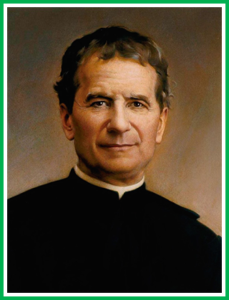
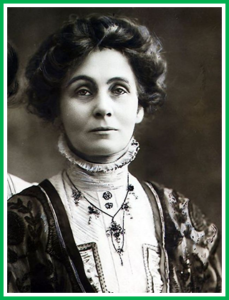
Emmeline Pankhurst
Pioneered for female rights in Britain
Born in 1858, Pankhurst was instrumental in securing the vote for women and championing women’s rights. In 1903, Emmeline Pankhurst founded the Women’s Social and Political Union, which used militant tactics to agitate for women’s suffrage. Pankhurst was imprisoned many times, but supported the war effort after World War I broke out. Parliament granted British women limited suffrage in 1918. Pankhurst died in 1928, shortly before women were given full voting rights.
King & Stang
Martin Luther King
Visible spokesman and leader of the American Civil Rights Movement
Born in 1929 in Atlanta, Martin Luther King became a Baptist minister and social activist who led the civil rights movement in the United States from the mid-1950s. His leadership was fundamental to that movement’s success in ending the legal segregation of African Americans in the South and other parts of the United States. King rose to national prominence as head of the Southern Christian Leadership Conference, which promoted nonviolent tactics, such as the March on Washington (1963), to achieve civil rights. He was awarded the Nobel Peace Prize in 1964. He was assassinated in 1968.
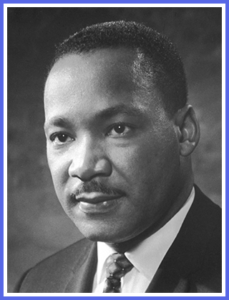
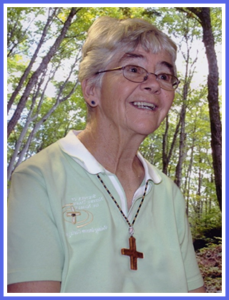
Sister Dorothy Stang
Sister, devoting her life to saving the land in the Amazon Rainforest. She lost her life as a martyr during her missionary work in Brazil
Born in Dayton in 1931, Dorothy was one of nine in a lively and devout Catholic family. In 1966 she moved to Brazil as a missionary. She learnt the languages and set up remote parishes. She walked the forest and met with the poorest farmers. She set up dozens of base communities and taught them the Gospel. She launched 23 schools and created a structure for the poor to claim their land. Dorothy dedicated her life to serving the people of the Amazon and saving the land. In 2005, whilst travelling to meet some poor farmer, she was approached by two assassins. “Do you have a weapon?” they asked. Yes, she answered, showing them the Bible she carried for decades. She opened it and began to read aloud: “Blessed are the poor in spirit. Blessed are those who hunger and thirst for justice. Blessed are the peacemakers …” Then, she said, “God bless you, my sons.” She was shot 6 times, with her body left on the dirt road for days as the locals feared moving it for the threat of being shot. Dorothy devoted her life to serving people through God and to helping save the Amazon environment, and eventually losing it as the ‘Martyr of the Amazon’.
Kolbe & Seacole
Saint Maximilian Kolbe
Catholic priest who sacrificed his own life for another’s in Auschwitz during WW2
Born in 1894, Saint Maximilian Kolbe was a Polish Franciscan Friar. He was arrested by the Nazis for hiding Jewish people and was sent to the concentration camp of Auschwitz. When the Nazi guards selected 10 people to be starved to death in punishment, Kolbe volunteered to die in place of a stranger. He was later canonised as a martyr.
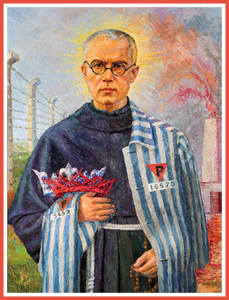
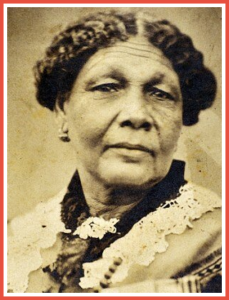
Mary Seacole
Inspirational Jamaican nurse, who gave selflessly, and overcame obstacles, to help the wounded
Born in 1805 and died in 1881, Mary Seacole was a Jamaican healer who faced unfairness and discrimination as a black woman when she tried to volunteer as a nurse during the Crimean War (1854-56). When the British turned down her offer of help, she decided to go to the Crimea independently. She set up a British Hotel near the frontline to provide comfort and supplies to the army. She rode nearly every day to the battle front to give out medicines and nurse the injured and dying. She was very well known when she returned to England but was largely forgotten after her death. Mary received four medals from a grateful British Government and in 1857 eighty thousand people turned up to honour Mary in a four-day gala held to raise money for her. In 2004 she was voted number one in a poll of Great Black Britons.
Romero & Curie
Oscar Romero
Influential Archbishop of El Salvador who advocated for the rights of the poor
Born in 1917, Oscar Romero was a Roman Catholic Archbishop who stood up for the freedom and justice of his people. He was a vocal critic of the violent actions of the government armed forces and defended the poor who were powerless victims of widespread violence. He was nominated for the Nobel Peace Prize in 1979, and was sadly assassinated a year later whilst saying mass.
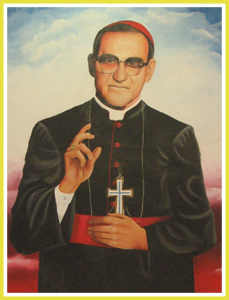
Marie Curie
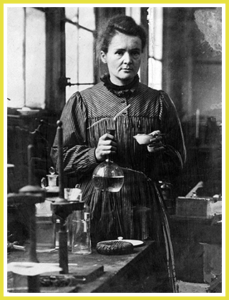
Marie Curie
Influential scientist, who developed use of radiation in medicine
Born in 1867 and died in 1934, Marie Curie was a Polish-born French physicist, famous for her work on radioactivity and twice a winner of the Nobel Prize. With Henri Becquerel and her husband, Pierre Curie, she was awarded the 1903 Nobel Prize for Physics. She was the sole winner of the 1911 Nobel Prize for Chemistry. She was the first woman to win a Nobel Prize, and she is the only woman to win the award in two different fields. Throughout her life she championed the use of radiation in medicine and fundamentally changed our understanding of radioactivity.